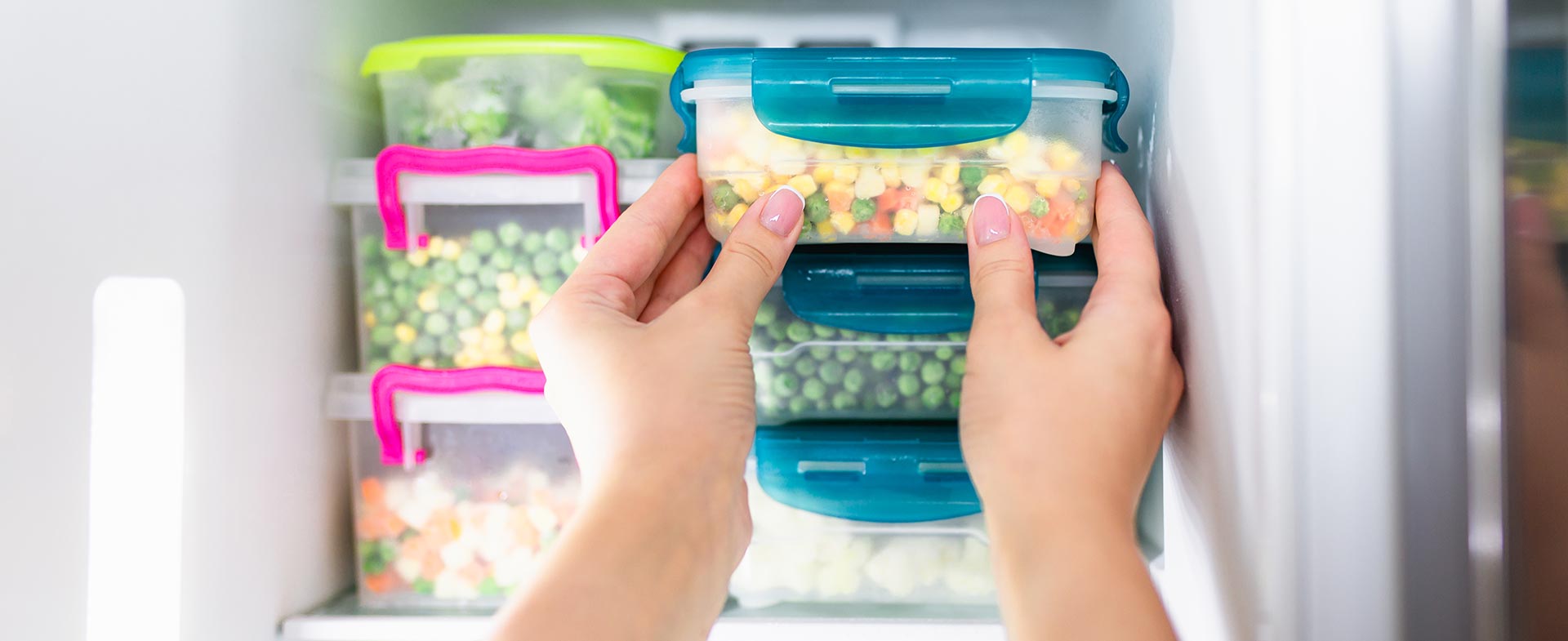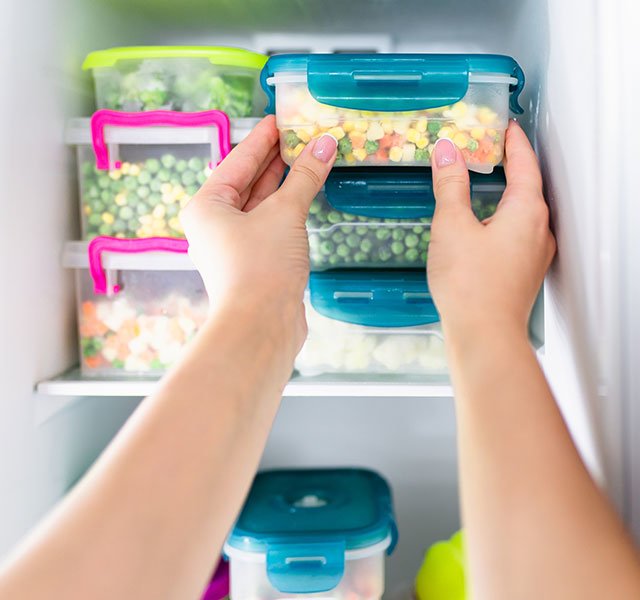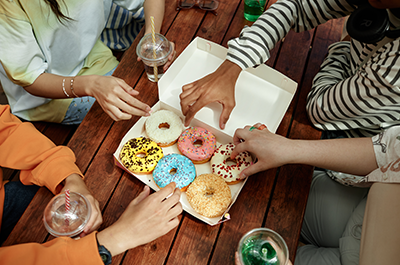There are plenty of devices and technology designed to promote healthy eating habits. But one piece of standard kitchen equipment need not go overlooked: the humble freezer. Not only does it preserve food before it expires, it also allows you to transform the frozen contents of baggies into delicious home-cooked meals in a matter of minutes.
“Use it well, and your freezer can save you time, money and help you get the nutrients you need with minimal prep work,” says Sayde Beeler, a registered dietitian at Henry Ford Health. “You can freeze almost anything, from casseroles and soups to individual ingredients, such as meat, cheese, grains, fruits and vegetables.”
Breaking Down Freezer Meals
Don’t want to fire up your oven in summer? If you stock your freezer well, you can take foods from freezer to microwave and have a quick dinner on the table without heating up the kitchen. Here are six tips to make the most of this underappreciated appliance:
- Plan ahead: If you’re good at planning, the freezer allows you to make meals in advance or freeze batch ingredients, such as ground beef, shredded chicken, rice and blocks of cheese. With staples like these, you can whip up meals like lasagna, tacos, burgers, soups and casseroles. Plan meals by the week (or even monthly depending how many people you’re feeding). “Then, come meal time, thaw what you need and preserve the rest for later eating,” Beeler suggests.
- Freeze in batches: Rather than fill an entire Pyrex dish with one lasagna, consider breaking up meals into individual portions, especially if you’re not feeding an entire family. When you know you’re not going to eat something right away, freeze it. This approach not only allows for faster freezing and thawing, it also helps prevent waste.
- Label everything: No matter what you’re freezing, always label the container with the contents and date. That way you won’t have to guess what’s in the freezer, and you’ll get a better sense of how long things are lingering there. You don’t need anything fancy. A standard no-smudge marker and some masking tape will do the trick.
- Store smart: You can store food in any container that’s freezer safe. To make the most of your freezer’s real estate, use ice cube trays for stocks and sauces and freezer-proof baggies for meats and cheeses. “That way you can just break off the amount you’re going to use and put the rest back in the freezer,” Beeler says. Mason jars and Pyrex dishes are freezer safe too, but you need to leave about an inch of space in the container for liquid to expand so the glass doesn’t shatter.
- Keep your freezer full (but not too full): Does your freezer look like an overstuffed wasteland? Clear it out and start from scratch. “You don’t want your freezer to be jam-packed because it wreaks havoc on air circulation and may increase the risk of freezer burn,” Beeler says.
- Freeze foods before they go bad: Are your bananas turning brown on the counter? Peel them, slice them and stock them in the freezer. You can use them later to make smoothies and baked goods. Same rule applies to apples, berries and other produce. Tortillas and fresh breads at risk of growing mold? Pop them in the freezer and use when you need them. Keep an eye on the freshness dates on meat, dairy and grain products and put them in the freezer before they expire.
Safe Freezing
While there’s nothing better than fresh-from-the-garden (or farm) produce, frozen fruits and vegetables can save you time and money. Plus, they often retain just as many nutrients as their fresh counterparts because they’re frozen at peak freshness.
When it comes to freezer meals, the greatest food safety risk comes from thawing meat and dairy. The safest method is to thaw all foods overnight in the refrigerator. If you don’t plan ahead and need to thaw something quickly, you can always run food under cold water and cook it right away.
To find a doctor or registered dietitian at Henry Ford, visit henryford.com or call 1-800-HENRYFORD (436-7936). You can also learn more about nutrition services available at Henry Ford.
Sayde Beeler, MSW, RDN, specializes in nutrition counseling and health coaching at Henry Ford Health’s Center for Health Promotion and Disease Prevention.



